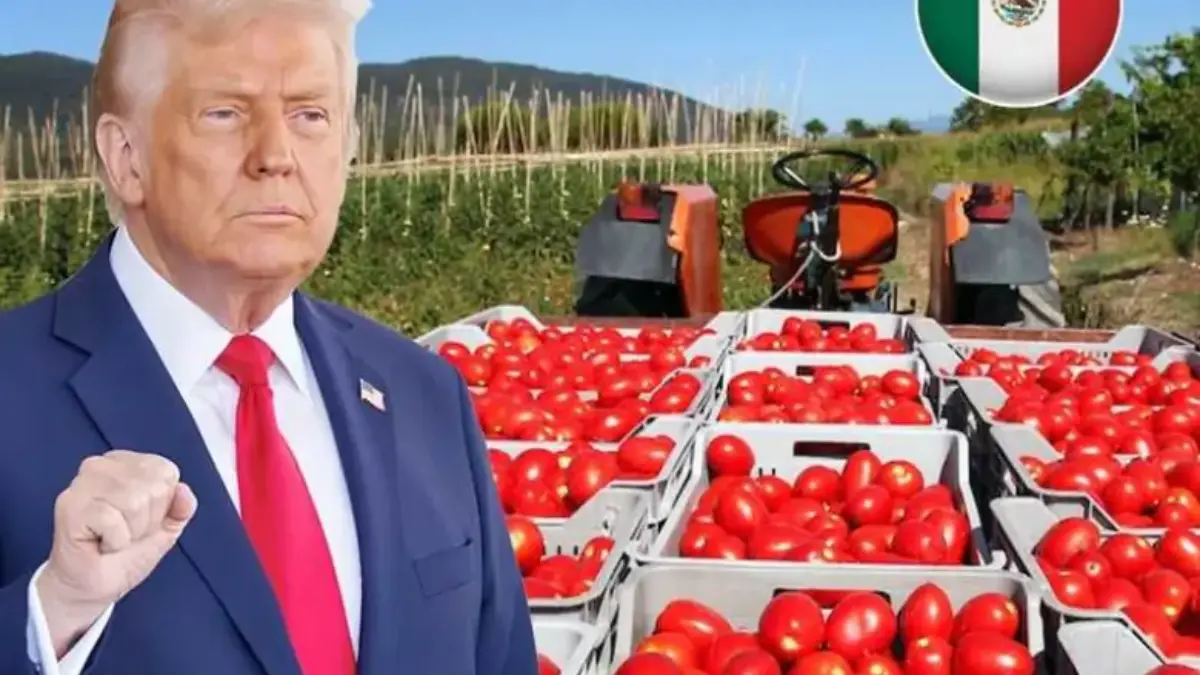
The U.S. government said Monday it will put a 17% tariff on the majority of fresh tomatoes imported from Mexico, a move that is likely to increase food costs and intensify trade tensions. The 2019 Tomato Suspension accord was formally terminated when talks between Washington and Mexico failed to produce a new accord.
Under the terms of the prior agreement, Mexican tomatoes were permitted to enter the US market duty-free as long as exporters followed minimum pricing guidelines to avoid market dumping. The Commerce Department attributed the decision to intense pressure from U.S. growers, and that agreement has since been disbanded.
The government stated in a statement, “We’ve been flooded with comments urging stronger protections,” indicating that domestic producers generally support the proposal.
The Florida Tomato Exchange, one of the change’s most outspoken supporters, praised the levy and said it was a start in the right direction to revive the American tomato industry. The group said, “This tariff will help rebuild the shrinking U.S. tomato industry.” Mexico now provides 70% of all tomatoes consumed in the U.S., a significant increase from just 30% two decades ago.
India Urged to Exercise Caution in Trade Talks with US Amid Rising Global Tensions
Industry Pushback and Supply Chain Risks

Not everyone is in favour of the change. Concerns about the economic impact are being raised by American companies that have operations in Mexico or rely significantly on imported tomatoes. Many caution that supply shortages, increased grocery costs, and wider trade retaliation may result from the additional tariff.
The U.S. Chamber of Commerce and 30 other business organisations voiced grave concerns in a joint letter to Commerce Secretary Howard Lutnick this week. They emphasised that around 50,000 American workers are directly employed by U.S. enterprises engaged in the tomato trade with Mexico, which also generates $8.3 billion for the national economy.
The letter issued a warning that ending the pact would further complicate an already unstable trade situation. The alliance added, “We are worried that pulling out of the agreement—when the business community is already dealing with a lot of trade uncertainty—could result in our trading partners taking retaliatory action against other commodities and crops.” “This may cause additional difficulties for American consumers and businesses.”
Trump Announces 35% Tariff on Canadian Imports, Expands Trade War with New Global Tariffs
Consumers to Feel the Price Pinch

Experts concur that the impacts would probably be felt soon by American consumers. According to Tim Richards, an agriculture professor at Arizona State University, the new 17% tariff may result in an 8.5% increase in the retail price of tomatoes in the United States.
Richards warned that fresh product prices frequently react quickly to changes in import costs, saying, “This is not just a policy change—it’s a hit to the household budget.”
Trump’s BRICS Tariff Threat Casts Shadow Over India-US Trade Deal
Part of a Broader Trade Reset

President Trump just days ago imposed a 30% base tariff on goods from Mexico and the European Union as part of his larger trade agenda; this duty is distinct from the new tomato tariff. This more comprehensive strategy seeks to slow the flow of specific imports, such as industrial and agricultural products, and rebalance U.S. trade relations.
Among Trump’s recent initiatives are attempts to punish countries thought to be involved in unfair trade practices, such as those connected to the illegal flow of drugs and market manipulation. Such tariffs, according to the administration, are required to safeguard American employment and industry.
Markets Track Trump’s Trade Actions as the Tariff Deadline Draws Near
Final note
Although the grocery store is likely to be the first place affected by the tomato tariff, trade policy, agricultural supply chains, and foreign relations may all be affected more broadly.
Key trading partners may retaliate in like if the United States strengthens its restrictions on imports, endangering American exports of manufactured goods or other crops. Businesses, consumers, and legislators are currently preparing for increased volatility, although it is unclear if fresh negotiations will be able to bring back a version of the previous suspension deal.
